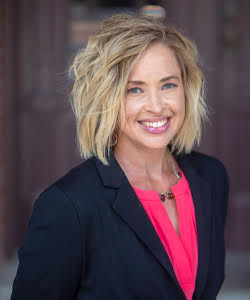 How did you become interested in studying early American literature?
How did you become interested in studying early American literature?
I became interested accidentally. I was studying 20th-century Southern American literature, working on the letters of Flannery O’Connor for my MA. I found a few scandalous things about her in the archive, but her estate denied me permission to publish from those papers. While brainstorming a way around that conundrum, I began researching the art of letter-writing, and the letter had its heyday in the 18th century. I fell for 18th-century print/material culture and the ways loyalist American women were using letters to engage in politics when they were denied other avenues – and really appreciated that everyone I was studying was long dead, so they couldn’t intervene in my publication permissions. I published Stripped and Script: Loyalist Women Writers of the American Revolution in 2019.
Who is your favorite early American writer, or what is your favorite early American text, and why?
My favorite early American novel is Charlotte Temple by Susanna Rowson and almost anything by Charles Brockden Brown. Temple raises issues of consent and agency that are still relevant today, and I appreciate Brown because his narrators are delightfully unreliable and weird and his novels cover almost every contemporary political/social justice issue in the late 18th century. I also really enjoy reading Revolutionary War letter-writers and diary-keepers, especially those by Elizabeth Drinker, Grace Growden Galloway, Anna Rawle, Elizabeth Graeme Fergusson, and Deborah Norris Logan.
What are you currently working on?
I’ve just finished writing an article on Black Loyalism in the Book of Negroes called “The Limits and Liberty of Loyalty” and am currently working on a new one called “Isolation, Infection, and Information Silos in Early American Literature.” This research attends to something I call the “information isolation trope,” popular in early American novels where protagonists are isolated from their network, become infected, spread that infection, and die. It concerns the potentially harmful effects of information silos and the regulation of information on the body, the body politic, and public health.
What is something you are reading right now (EAL related or otherwise) that inspires you, either personally or professionally?
I just picked up Race Sounds: The Art of Listening in African American Literature by Nicole Brittingham Furlonge, whom I heard speak at the Equal Justice Initiative’s diversity training. Reading this was part of a larger experience where a large group of educators toured the Legacy Museum and the National Memorial for Peace and Justice in Montgomery and worked on DEI initiatives for our schools, and I was inspired by both the book and the experience.
Is there a scholar in the field who inspires you, and why?
I have too many to list, but Chris Phillips has always inspired me and been a good friend. He’s smart, prolific, collegial, and he’d do anything for a colleague.
Kacy Dowd Tillman is Professor of English and Writing and Co-Director of Honors at the University of Tampa.
